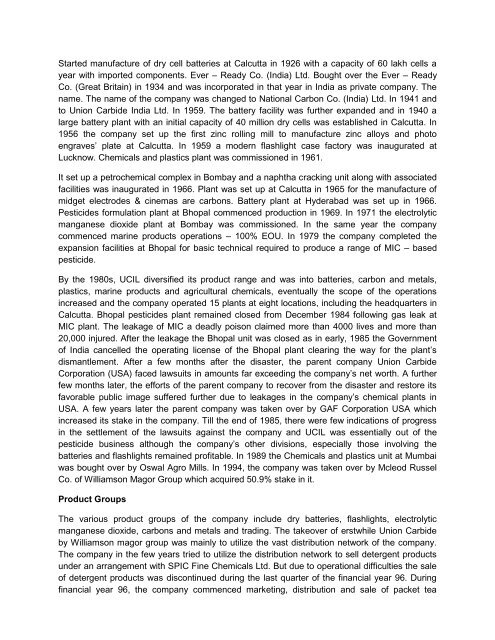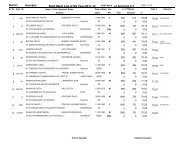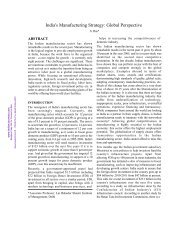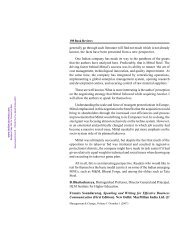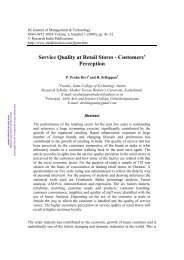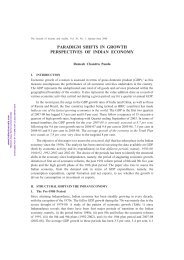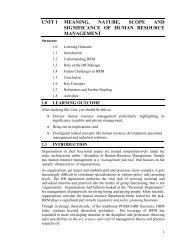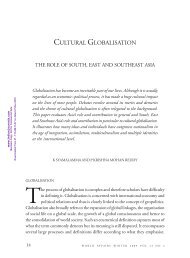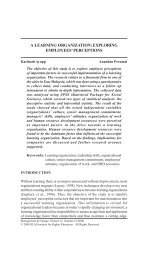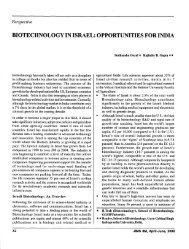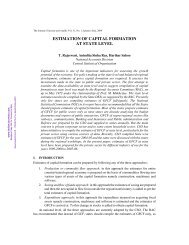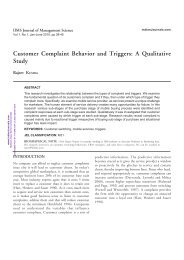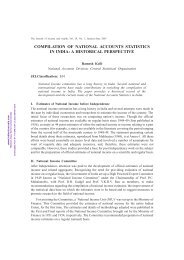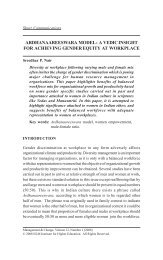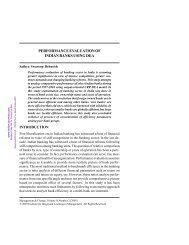case of williomsen and everday merger.pdf - Mimts.org
case of williomsen and everday merger.pdf - Mimts.org
case of williomsen and everday merger.pdf - Mimts.org
You also want an ePaper? Increase the reach of your titles
YUMPU automatically turns print PDFs into web optimized ePapers that Google loves.
Started manufacture <strong>of</strong> dry cell batteries at Calcutta in 1926 with a capacity <strong>of</strong> 60 lakh cells a<br />
year with imported components. Ever – Ready Co. (India) Ltd. Bought over the Ever – Ready<br />
Co. (Great Britain) in 1934 <strong>and</strong> was incorporated in that year in India as private company. The<br />
name. The name <strong>of</strong> the company was changed to National Carbon Co. (India) Ltd. In 1941 <strong>and</strong><br />
to Union Carbide India Ltd. In 1959. The battery facility was further exp<strong>and</strong>ed <strong>and</strong> in 1940 a<br />
large battery plant with an initial capacity <strong>of</strong> 40 million dry cells was established in Calcutta. In<br />
1956 the company set up the first zinc rolling mill to manufacture zinc alloys <strong>and</strong> photo<br />
engraves‟ plate at Calcutta. In 1959 a modern flashlight <strong>case</strong> factory was inaugurated at<br />
Lucknow. Chemicals <strong>and</strong> plastics plant was commissioned in 1961.<br />
It set up a petrochemical complex in Bombay <strong>and</strong> a naphtha cracking unit along with associated<br />
facilities was inaugurated in 1966. Plant was set up at Calcutta in 1965 for the manufacture <strong>of</strong><br />
midget electrodes & cinemas are carbons. Battery plant at Hyderabad was set up in 1966.<br />
Pesticides formulation plant at Bhopal commenced production in 1969. In 1971 the electrolytic<br />
manganese dioxide plant at Bombay was commissioned. In the same year the company<br />
commenced marine products operations – 100% EOU. In 1979 the company completed the<br />
expansion facilities at Bhopal for basic technical required to produce a range <strong>of</strong> MIC – based<br />
pesticide.<br />
By the 1980s, UCIL diversified its product range <strong>and</strong> was into batteries, carbon <strong>and</strong> metals,<br />
plastics, marine products <strong>and</strong> agricultural chemicals, eventually the scope <strong>of</strong> the operations<br />
increased <strong>and</strong> the company operated 15 plants at eight locations, including the headquarters in<br />
Calcutta. Bhopal pesticides plant remained closed from December 1984 following gas leak at<br />
MIC plant. The leakage <strong>of</strong> MIC a deadly poison claimed more than 4000 lives <strong>and</strong> more than<br />
20,000 injured. After the leakage the Bhopal unit was closed as in early, 1985 the Government<br />
<strong>of</strong> India cancelled the operating license <strong>of</strong> the Bhopal plant clearing the way for the plant‟s<br />
dismantlement. After a few months after the disaster, the parent company Union Carbide<br />
Corporation (USA) faced lawsuits in amounts far exceeding the company‟s net worth. A further<br />
few months later, the efforts <strong>of</strong> the parent company to recover from the disaster <strong>and</strong> restore its<br />
favorable public image suffered further due to leakages in the company‟s chemical plants in<br />
USA. A few years later the parent company was taken over by GAF Corporation USA which<br />
increased its stake in the company. Till the end <strong>of</strong> 1985, there were few indications <strong>of</strong> progress<br />
in the settlement <strong>of</strong> the lawsuits against the company <strong>and</strong> UCIL was essentially out <strong>of</strong> the<br />
pesticide business although the company‟s other divisions, especially those involving the<br />
batteries <strong>and</strong> flashlights remained pr<strong>of</strong>itable. In 1989 the Chemicals <strong>and</strong> plastics unit at Mumbai<br />
was bought over by Oswal Agro Mills. In 1994, the company was taken over by Mcleod Russel<br />
Co. <strong>of</strong> Williamson Magor Group which acquired 50.9% stake in it.<br />
Product Groups<br />
The various product groups <strong>of</strong> the company include dry batteries, flashlights, electrolytic<br />
manganese dioxide, carbons <strong>and</strong> metals <strong>and</strong> trading. The takeover <strong>of</strong> erstwhile Union Carbide<br />
by Williamson magor group was mainly to utilize the vast distribution network <strong>of</strong> the company.<br />
The company in the few years tried to utilize the distribution network to sell detergent products<br />
under an arrangement with SPIC Fine Chemicals Ltd. But due to operational difficulties the sale<br />
<strong>of</strong> detergent products was discontinued during the last quarter <strong>of</strong> the financial year 96. During<br />
financial year 96, the company commenced marketing, distribution <strong>and</strong> sale <strong>of</strong> packet tea


